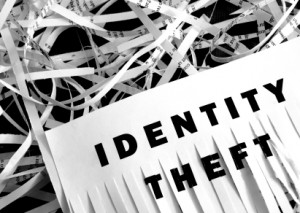
This morning a good friend called to tell me about a problem they’re facing. They’re retired folks and she had told me before that since her husband has nothing better to do with his time, he checks their bank accounts daily.
He doesn’t like computers, so he calls the automated number to check their balances and see if checks they’ve written have come through. To put it in her words, “He drives me nuts with this constant checking.”
Well, yesterday she was glad that he has this compulsion.
When he checked in yesterday, he found that their checking account balance was $2!
He also found 4 different debit transactions that didn’t belong to them. They live in Idaho, and the transactions were at Home Depot and WalMart – in North Dakota! They were obviously not done at the check-out counter, because 3 of the $300+ transactions were posted within about a 2 minute time frame. So, this is being done electronically.
The interesting thing is that the first charge, for only $10, was done a few days earlier – and in spite of his checking, he missed it. We can assume that it was a “test” debit to see if the charge would be accepted.
They immediately went to the bank and were assured that these debits had not yet been approved and would not be. But she was dismayed when they checked again today and they’re still showing.
She had called and the person she spoke with said “Oh, I guess we didn’t get that taken care of yesterday…” When we hung up they were on their way back to the bank.
But that’s not all they need to do. I sent her the link to our “What to do” post and urged her to take the steps outlined there.
Meanwhile, they’ve written and mailed checks against their (true) balance and are worried about overdraft fees if those checks come in before the bogus debits are removed. Or worse – what if the bank decides to bounce the checks?
The bank says “Don’t worry” but they’re worried. After all, they didn’t post an alert about the theft and deny those charges yesterday as promised, so…?
We can’t tell you a way to prevent this kind of scenario – aside from not using credit or debit cards. And even then, if you’ve ever had a home loan or visited a doctor’s office, or done anything that required revealing your Social Security number, you’re at risk.
Smart crooks have found ways to access records – and even figure out your PIN numbers.
Credit monitoring services such as those we offer here will let you know if a thief is accessing your credit report or trying to set up new accounts in your name. They’ll let you know of changes to your file – such as a change of address attached to a dormant account that is now in use.
But to be absolutely safe, you do need to check your bank accounts and credit cards regularly. Actually read every statement you receive, and access those accounts on line a time or two between statements.
The sooner you put the brakes on an identity thief, the less trouble you’ll have.
Author: Marte
CreditScoreQuick.com



